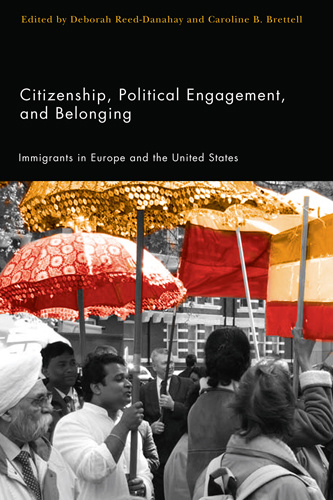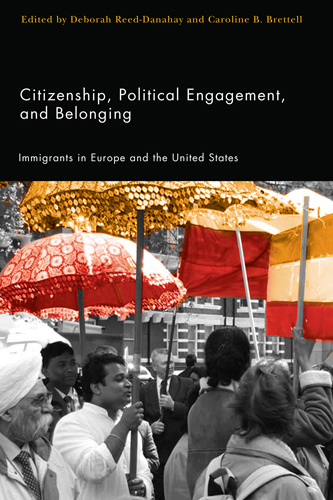Citizenship, Political Engagement, and Belonging
Immigrants in Europe and the United States
Immigration is continuously and rapidly changing the face of Western countries. While newcomers are harbingers of change, host nations also participate in how new populations are incorporated into their social and political fabric.
Bringing together a transcontinental group of anthropologists, this book provides an in-depth look at the current processes of immigration, political behavior, and citizenship in both the United States and Europe. Essays draw on issues of race, national identity, religion, and more, while addressing questions, including: How should citizenship be defined? In what ways do immigrants use the political process to achieve group aims? And, how do adults and youth learn to become active participants in the public sphere?
Among numerous case studies, examples include instances of racialized citizenship in “Algerian France,” Ireland’s new citizenship laws in response to asylum-seeking mothers, the role of Evangelical Christianity in creating a space for the construction of an identity that transcends state borders, and the Internet as one of the new public spheres for the expression of citizenship, be it local, national, or global.
An innovative and exciting book that has much to add to our understanding of international migration and citizenship.
A pathbreaking collection that takes us a long way to understanding the effects of transnational migration on notions of national identity, state policies, and the strategies immigrants develop for becoming recognized as legitimate members of their new communities whether in the United States or other parts of the world.
This ethnographic collection is an important addition to the literature on transnational migration and related issues of identity, citizenship, and belonging. The book's major strength is that it brings together material from the US and Western Europe, an approach that offers valuable insights not just on the range of immigrant experiences, but on the diversity of national contexts in which migrants find themselves.
CAROLINE B. BRETTEL is a Dedman Family Professor of Anthropology at Southern Methodist University.
Introduction
Part I. Inclusion and Exclusion: Discourses of Belonging
Part II. Political Mobilization and Claims Making
Part III. New Spaces of Citizenship
Afterword: Some Concluding Reflections
References
Contributors
Index





